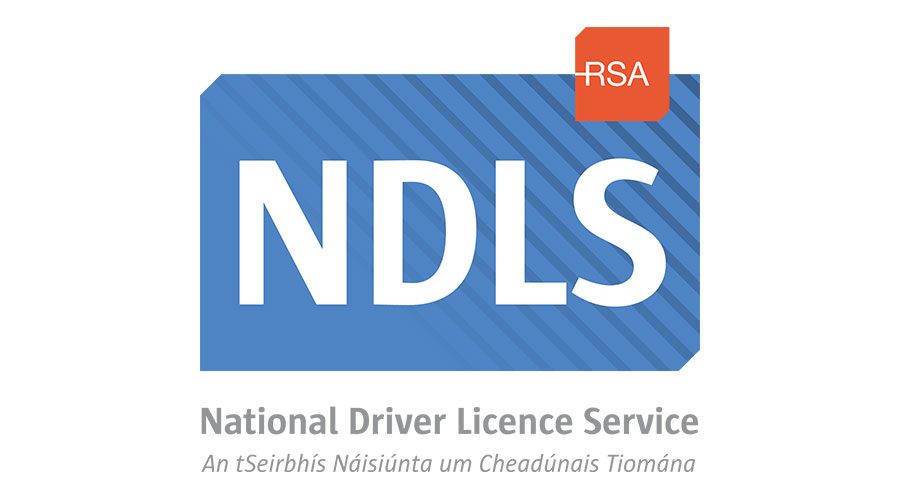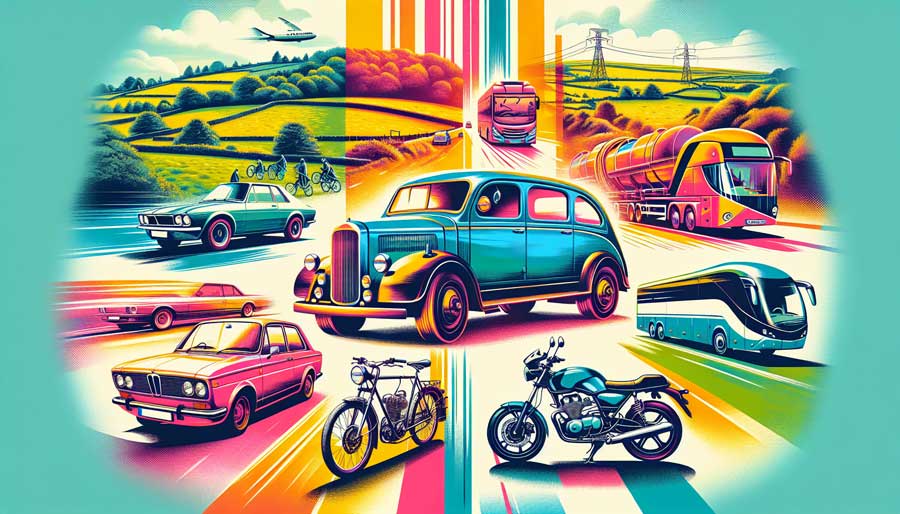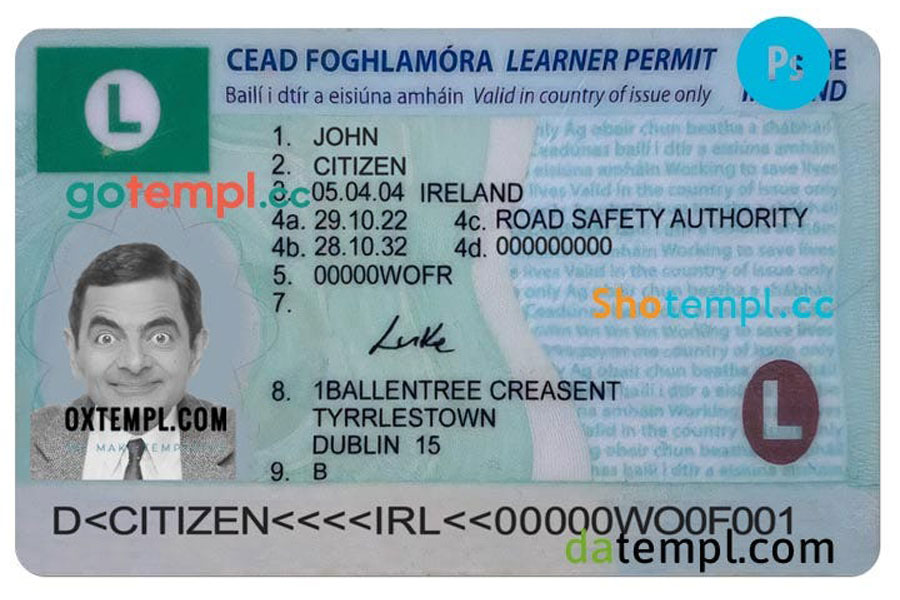Understanding the Minimum Age: What Age Can You Drive a Car in Ireland?
Ready to hit the gas in Ireland? At 17 years old, you can steer toward independence with your first learner permit. Our guide demystifies the journey to getting fully licensed, ensuring you’ll know exactly “what age can you drive in Ireland” and the crucial milestones along the way.
Key Takeaways
- The minimum age to obtain a learner permit for Category B vehicles, which includes standard cars, in Ireland is 17 years old. Prospective drivers can prepare for the theory test at 15 years old, followed by Essential Driver Training (EDT) or Initial Basic Training (IBT) before being eligible to apply for a full driving licence.
- A theory test that assesses knowledge of road signs and rules is mandatory to apply for a learner permit, along with completing 12 one-hour behind-the-wheel sessions with an Approved Driving Instructor (ADI). These educational steps are crucial for ensuring drivers are competent and safe on the roads.
- Ireland recognizes 14 different vehicle categories for driving licences, each with specific age and training requirements. Heavier vehicle categories require a higher minimum age and additional qualifications, such as a Driver Certificate of Professional Competence (CPC), demonstrating the necessity of skills proportional to the vehicle type and associated road safety responsibilities.
Navigating the Age Requirement for Irish Drivers

In Ireland, the journey to acquiring a driving licence begins with understanding the driver’s minimum age requirement and the concept of a provisional driving licence, also known as a learner permit. The learner permit serves as a stepping stone, granting individuals who have not yet passed their driving test the opportunity to take driving lessons and operate a vehicle on public roads, accompanied by an adult holding a full driving licence.
This process ensures a gradual progression from a novice driver to a fully competent one, reducing the risk of accidents and promoting safer driving practices. Grasping these age requirements and the progression from a learner permit to a full driving licence is pivotal for traversing the Irish driving landscape.
Starting Your Driving Journey: Minimum Age for Learner Permits
The minimum age to begin this journey varies depending on the vehicle category. For Category B vehicles, which include standard cars, the minimum age to obtain a learner permit is 17 years old. But the learning doesn’t start here. Individuals can start preparing for the theory test at 15 years old, introducing them to the rules of the road and safe driving practices early on.
Securing a learner permit goes beyond just reaching a specific age; it marks the demonstration of your knowledge and comprehension of driving. The theory test acts as a fundamental evaluation, confirming that prospective drivers are furnished with the requisite knowledge before they commence their practical driving lessons.
From Learner to Full Licence: Progression to a Full Driving Licence
Transitioning from a learner to a fully licensed driver is a significant step. To obtain a full driving licence for a car, one must:
- Be at least 17 years old
- Have held a learner permit for at least six months
- Have completed the Essential Driver Training (EDT) or the Initial Basic Training (IBT) as a completed relevant driver
The driving test, which is the final hurdle before obtaining a full licence, evaluates the candidate’s knowledge of the rules of the road, driving skills, and ability to ensure the safety of other road users. It goes beyond mere driving ability; it embodies a dedication to safety and responsible conduct on the road.
The Path to Legal Driving: Essential Steps Before Hitting the Road
Achieving legal driving status in Ireland necessitates more than merely attaining the driver’s minimum age. It’s an expedition brimming with crucial steps, each tailored to furnish you with the skills and comprehension necessary for safe and confident navigation on the road. From the theory test to mandatory driving lessons, each step is a building block towards becoming a competent and responsible driver.
These steps are not just regulatory requirements; they are milestones in your driving journey, each offering unique learning experiences. The theory test equips you with essential knowledge, while the mandatory driving lessons provide a hands-on experience of driving, preparing you for the challenges and unpredictability of the road.
Theory Test Triumph: Beginning with the Basics
The theory test is the first significant hurdle in your driving journey. It’s a prerequisite before applying for a learner permit, assessing your knowledge of road signs, rules of the road, and risk perception. However, passing this test requires preparation and study, making use of resources such as the official driver theory test book, CD-ROM, and online resources.
The test can be taken at various test centers nationwide, and appointments can be booked online. Official revision materials, including a learning app, offer practice questions and mock tests, making the preparation process easier and more interactive.
The theory test transcends being a mere requirement; it signifies your initial stride towards comprehending and adhering to the rules of the road.
Behind-the-Wheel Training: Mandatory Driving Lessons
After passing the theory test, the next step is behind-the-wheel training. To legally drive in Ireland, learners must complete Essential Driver Training (EDT) with an Approved Driving Instructor (ADI) as part of the Irish driving test process. This training consists of 12 one-hour sessions for car drivers, designed to build a fundamental base for safe driving. Motorcyclists, on the other hand, are required to complete Initial Basic Training (IBT), which includes a mix of theory and practical riding skills.
The EDT and IBT go beyond merely teaching how to operate a vehicle; they encapsulate the understanding and respect for the road, anticipation and response to diverse driving situations, and safeguarding the safety of all road users. After completing the EDT or IBT, learners receive a certificate of completion, which must be presented when applying to take the practical driving test.
Category Considerations: Vehicle Types and Driver’s Categories
In Ireland, the driving licence you need depends not only on your age but also on the type of vehicle you intend to drive. The country recognizes a total of 14 vehicle categories for driver licensing purposes, each with its specific age requirement and licensing process. Comprehending these categories is vital in determining the licence type to apply for, be it for a car, motorcycle, or even heavy-duty vehicles like buses and trucks.
These categories encompass not only the vehicle type but also the degree of responsibility and skill needed to operate them. For instance, heavy vehicle categories like buses and trucks, as well as vehicles in category c, require a higher minimum age and additional training due to their size and potential risks on the road.
Two Wheels or Four: Motorcycle and Car Licence Categories
The age requirements and licensing considerations for motorcycles and cars in Ireland differ. For motorcycles, the minimum age to hold a full licence varies from 16 years for categories AM and A1 to 20 or 24 years for category A, depending on whether the rider chooses progressive or direct access. For standard cars, classified under category B, the minimum age to hold a full licence is 17 years.
These age requirements reflect the level of skill and responsibility needed to operate different types of vehicles. For instance, smaller motorcycles require less skill to operate compared to larger ones, hence the lower minimum age requirement.
Heavy-Duty Handling: Buses and Trucks Licence Requirements
Heavy vehicle categories, such as buses and trucks, come with their unique requirements. For instance, to obtain a full driving licence for trucks (category C), one must meet the driver’s minimum age of 18 years old with a Driver Certificate of Professional Competence (CPC), or 21 years old without it. For buses (category D), the minimum age is 24 years, but with a CPC, it drops to 21 years.
These elevated age prerequisites encapsulate the greater responsibility and skill necessary to handle bulkier and larger vehicles. Not only do these vehicles require more skill to handle, but they also pose a higher risk on the road due to their size and weight.
Applying for a Learner Permit: A Step-by-Step Guide
Applying for a learner permit in Ireland is a straightforward process, whether you choose to apply online or in-person. If you have a Public Services Card and a verified MyGovID account, you can apply online without the need for paper forms, appointments, or visiting an NDLS centre. An in-person application, on the other hand, requires filling out a D201 application form and providing suitable identification, which typically involves booking an appointment at an NDLS centre.
Regardless of your application method, you’ll need to provide the following supporting documentation:
- Medical report
- Eyesight report form
- Proof of address
- Theory test certificate
All documentation should be relevant to the permit category applied for. There’s also an application fee of €35.00, which is waived for applicants aged 70 years or over.
On the Road: Rules for Driving with a Learner Permit
Holding a valid learner permit comes with specific rules that must be strictly adhered to for safety and legal compliance. These rules include:
- Being supervised by an Approved Driving Instructor or a driver who has held a full licence in the same category for at least two years
- Displaying conspicuous L-plates
- Not permitted to drive on motorways
- Obtaining your subsequent learner permit online.
There are also restrictions based on vehicle categories. For instance:
- Category B learner permit holders cannot tow trailers
- Motorcycle learners must not carry passengers in passenger vehicle
- Only category W permit holders can carry a passenger if the vehicle is designed for it and the passenger is an experienced licensee
These rules ensure the safety of the learner driver, passengers, and other road users, including those operating driver b vehicles.
Insurance Insights: Covering Your Drive
Having the appropriate car insurance cover is a crucial part of legal driving in Ireland. Learner drivers are required to have the correct car insurance cover to practice driving, although they generally face higher premiums due to a lack of experience on the road, with additional policy restrictions commonplace.
The minimum legal car insurance requirement for learner drivers in Ireland is Third Party Only, but they may also opt for Third Party Fire & Theft or Comprehensive cover depending on their preference and risk assessment. By maintaining a no claims bonus and opting for smaller, less powerful cars, young drivers can work towards reducing their insurance costs over time.
Renewing and Upgrading: Maintaining Driving Legality
Maintaining driving legality requires timely renewals and upgrades of your driving licence. In Ireland, learner permits can be renewed if they have expired or within 3 months before the expiry date, each permit typically lasts for 2 years. A fee of €35 is required for each renewal of a learner permit.
Passing the driving test results in a Certificate of Competency, valid for 2 years, which is essential for applying for a full driving licence, including specific Category C and D licences after completing relevant tests. Upgrading or renewing your licence goes beyond mere validity; it underscores the importance of continual learning and improvement as a driver.
Summary
In conclusion, becoming a legally licensed driver in Ireland is a journey that requires understanding age requirements, passing theory and practical tests, and complying with specific regulations based on the vehicle category. Each step of this process is designed to ensure that drivers are well-equipped with the necessary knowledge and skill to safely navigate the roads. Remember, driving is not just about getting from point A to B; it’s about ensuring the safety of yourself and other road users. So, buckle up, stay informed, and enjoy the journey to becoming a competent and responsible driver.
Frequently Asked Questions
Can you get driving lessons at 16 in Ireland?
No, you cannot start driving lessons in Ireland until you are 17 years old and have passed your theory test.
Can you get a full license at 17 in Ireland?
No, you can only get a provisional license (learner’s permit) at 17 and take the test for a full license at 18.
What vehicles can you drive at 16 in Ireland?
You can drive motorcycles and mopeds at 16 in Ireland.
Can you do your theory test at 16 in Ireland?
Yes, you can do your theory test at 17 in Ireland. But you must be at least 17 years old to get a learner permit to drive a car in Ireland.
What is the theory test, and why is it important?
The theory test is essential for obtaining a learner permit as it assesses your knowledge on road signs, rules of the road, and risk perception. Passing this test is necessary before moving forward with driving training.







